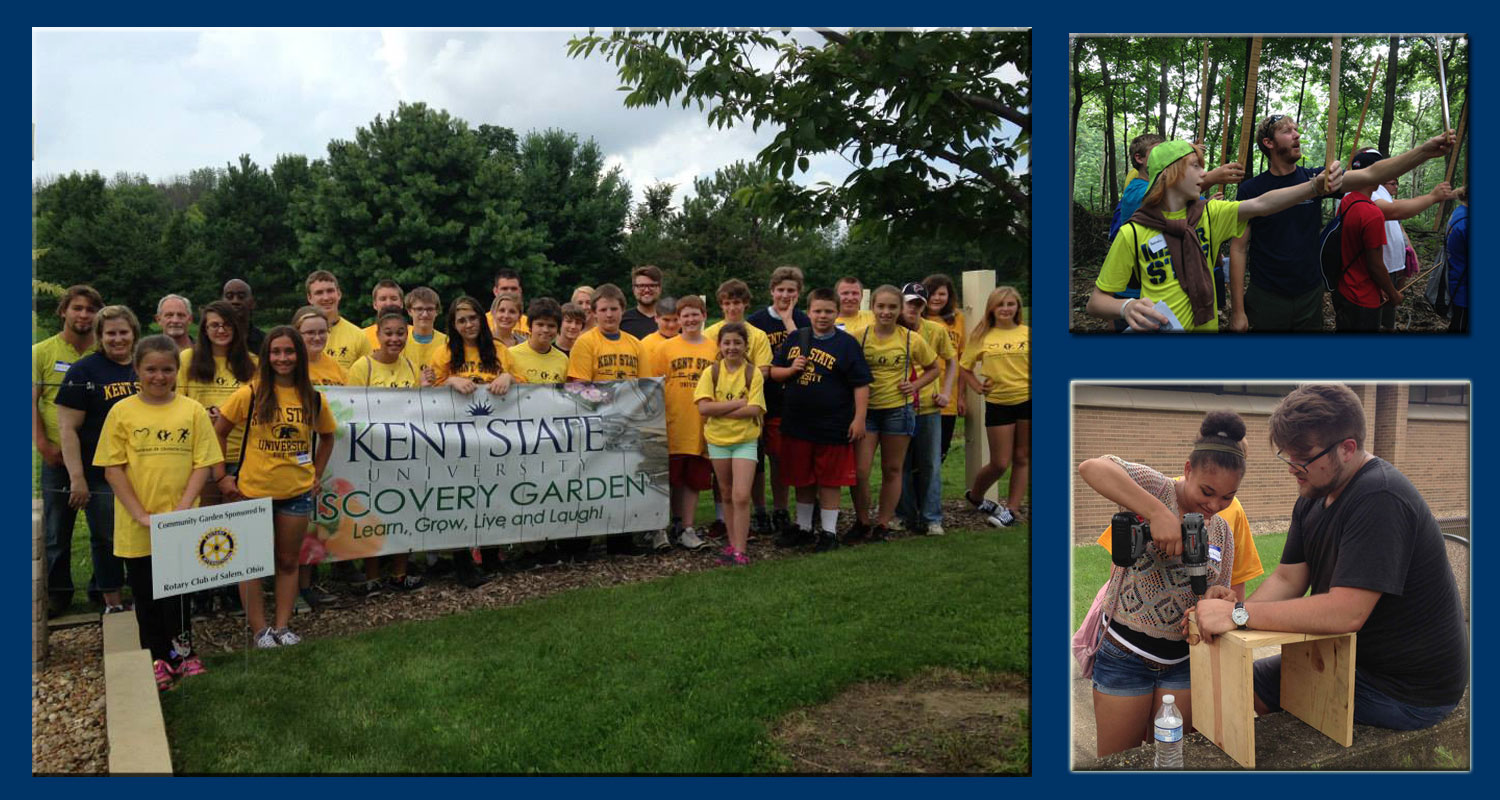Salem ‚Äì ¡Ω–‘…´ŒÁ“π University‚Äôs Columbiana County Campuses recently received an $85,000 grant from the Ohio Department of Education‚Äôs Community Connectors program. Of the 118 grants awarded statewide, this was one of two awarded in Columbiana County.
The Rural Scholars Program is designed to offer local first-generation college-bound students and their families the knowledge and social support needed to succeed at a university. The goal is for each student in the program to complete a post-secondary education with credentials necessary to succeed in his or her career. Students are chosen by their schools on the basis of their academic and leadership potential.
¡Ω–‘…´ŒÁ“π Salem and East Liverpool students serve as mentors to the younger scholars. Each mentor is a first-generation college student from Columbiana County with a strong record of academic success and a desire to serve the community.
 Currently, there are 74 rural scholars in the program from grades seven through 10. They represent Salem, Crestview, Lisbon David Anderson, Southern Local, East Liverpool, Wellsville, United Local and Leetonia school districts. Grant funds will be used to support transportation and staffing needs for the program, but the campus will continue to rely on the community’s support in providing scholarships for mentors and scholars.
Currently, there are 74 rural scholars in the program from grades seven through 10. They represent Salem, Crestview, Lisbon David Anderson, Southern Local, East Liverpool, Wellsville, United Local and Leetonia school districts. Grant funds will be used to support transportation and staffing needs for the program, but the campus will continue to rely on the community’s support in providing scholarships for mentors and scholars.
Wendy Pfrenger is the director for the ¡Ω–‘…´ŒÁ“π Rural Scholars program. She noted that the grant application process was quite time-consuming and required a great deal of community collaboration. ‚ÄúWhen we first learned about this grant, we knew it was a perfect fit for our program,‚Äù she said. ‚ÄúWe are so excited to see the state recognizing the role of mentoring in helping our youth and our communities realize their potential.‚Äù
The Community Connectors program was introduced in 2014 by Gov. John Kasich as a way to bring together families, community organizations, faith-based organizations and businesses to support Ohio schools and mentor students. According to its website, Community Connectors “provides $10 million in lottery profits in 3-to-1 matching grants to help give more Ohio students access to role models who can help motivate and inspire them, as well as help them develop skills that lead to success in school and the workplace.”
The grant requires recipients to carry out five core principles of the Community Connectors program. These include: setting goals to be prepared for 21st century careers; building character; developing pathways to achievement; building a sense of resiliency; and believing in a positive future.
“Our mentors and advisory board had the vision to build these principles into our program outcomes from the beginning, but the grant will be essential to our capacity for achieving them,” Pfrenger said.
While the success of the Rural Scholars program relies heavily on the mentoring relationships, she is quick to recognize the importance of support from local businesses and organizations.
‚ÄúOur community support is what made us a really good candidate for this grant,‚Äù she said. ‚ÄúOur business partners and donors recognize the value of this program and support it wholeheartedly. And so many other area businesses have helped by opening their doors to our scholars and allowing them to see the types of job opportunities available for them once they graduate from ¡Ω–‘…´ŒÁ“π. They inspire and encourage our students.‚Äù
Pfrenger noted that local financial support for the Rural Scholars program comes from the Salem Community Foundation, Rachel Boyce-Lang Charitable Trust, Consumers National Bank, Giant Eagle of Salem, Bob and Linda Sebo, the Rotary Club of Salem and other community supporters.
Because the Rural Scholars program continues to grow each year – adding new scholars, new schools and new mentors – she said that the expenses to support the program also grow. The grant will support transportation for workshops and field trips, while also helping Pfrenger prioritize staffing needs.
“If we can raise enough money in the community to continue granting scholarships, we will have the final piece of the puzzle for making this program sustainable,” Pfrenger said.
Not only is she the director for the Rural Studies program, but Pfrenger is also a fulltime faculty member (teaching English) and oversees the Learning Center on the Salem Campus. This grant will help support the work of a graduate assistant and a student worker to assist her.
Additionally, the grant will help support the work of the mentors leading the Civic Reflection and Junior Achievement programming in local schools.
# # #
Photo Caption:
Participating in a Rural Scholars summer workshop on the ¡Ω–‘…´ŒÁ“π Salem Campus were Whitney Carter (left) and mentor Clayton Poteet building a wild bee hotel.
Media Contact:
Tina Smith, tsmit170@kent.edu, 330-337-4247
